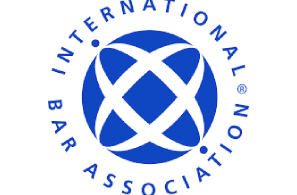The International Bar Association (IBA)’s human rights wing has called on countries to suspend any extradition agreements with Hong Kong amid an ongoing crackdown on dissent in the city.
The call follows threats to U.K.-based rights group founder Benedict Rogers by Hong Kong’s national security police, who issued a takedown order for the U.K.-based Hong Kong Watch rights website, threatening to pursue him under a draconian national security law imposed on the city by the ruling Chinese Communist Party (CCP) from July 1, 2020.
“The last few years have seen a significant deterioration of human rights in Hong Kong as China’s grip on the city tightens,” Anee Ramberg, who chairs the IBA’s Human Rights Institute (IBAHRI), said in a statement.
“The IBAHRI calls for the international community to suspend extradition treaties with Hong Kong to protect those attempting to protect human rights wherever they reside,” she said, adding that the law is being used to silence rights activists both in Hong Kong and now overseas.
“Human rights defenders must be able to do this important work without constant threats of imprisonment,” Ramberg said.
The Hong Kong national security police said in a letter to Hong Kong Watch CEO Benedict Rogers that he should “immediately cease engaging in any acts and activities in contravention of the national security law or any other laws of Hong Kong.”
The group has been highly critical of the CCP’s rights record in Hong Kong, particularly following a city-wide crackdown on pro-democracy activists, opposition politicians and journalists under the national security law.
IBAHRI co-chair Mark Stephens said the threat to Rogers was a bid to “silence the voices of human rights defenders and chill the intentions of others.”
“[We condemn] the intimidation of the much-respected Hong Kong Watch,” Stephens said. “If we do not stand up for human rights defenders now, and protect them from such attacks, including by suspending extradition treaties, there will not be many defenders left; this likely being the ultimate goal of China’s ruling group.”
More than 160 people have been arrested and dozens of civil society organizations forced to close since the national security law took effect.
Currently, 20 countries have extradition agreements with Hong Kong, with some suspended, but many remaining active, the IBAHRI said.
Extradition agreements remain active between Hong Kong and the Czech Republic, India, Indonesia, Malaysia, the Philippines, Portugal, Singapore, South Africa, South Korea and Sri Lanka, it said, warning that traveling to those countries puts anyone who might be a target of Hong Kong’s draconian law at risk of arrest and extradition to face charges in Hong Kong.
So far, Australia, Canada, Germany, New Zealand, the United Kingdom and the United States have suspended their extradition agreements with Hong Kong.
“It’s important that countries reconsider their extradition agreements, not simply because of my case, but in relation to anyone who the Hong Kong authorities might seek to have extradited, particularly exiled Hong Kong activists,” Rogers told RFA in a recent interview.
“I would echo their call, that countries should suspend their extradition agreements,” he said.
Hong Kong executive councilor Ronny Tong, a member of the city’s cabinet, said the IBAHRI lacked understanding of Hong Kong judicial system, and accused it of “smearing Hong Kong.”
Read more at https://www.rfa.org/english/news/china/extradition-03282022140641.html




